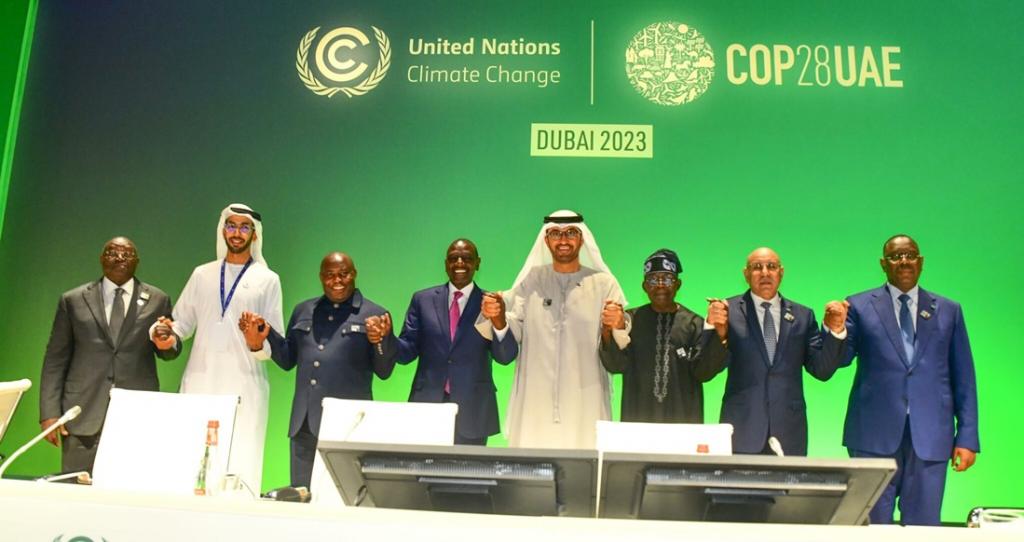NEWS
What is Africa's objective at COP28 ?

The Horn of Africa region, which suffered severe drought earlier this year, is currently experiencing flooding. These extreme weather conditions are causing massive population displacements, from Somalia to Kenya.
Against this critical backdrop, the African Group of Negotiators (AGN), currently led by Zambia, will represent the continent at the COP28 talks in Dubai. Despite the fact that Africa contributes less than 5% of global emissions, it suffers disproportionately from the adverse consequences of climate change. Consequently, for African countries, tackling the impact of climate change is both an emergency and a matter of survival.
What does Africa want from Dubai?
The African Group of Negotiators (AGN), under the leadership of Chief Negotiator Ephraim Shitima, is focusing on two key issues at COP28: an equitable energy transition and climate change financing, including adaptation funding.
There is now a global consensus on the need for a transition from fossil fuels to renewable energies. However, a central demand of African leaders is the continent's right to an equitable transition. African countries, most of them developing economies, are seeking to temporarily maximize their fossil fuel production to promote industrialization, before redirecting these profits to renewable energies. Their argument rests on the fact that developed countries have built their wealth by exploiting fossil fuels, and that African countries should also have the opportunity to accelerate their development by providing energy to millions of people without access to electricity on the continent, notably by exploiting natural gas, considered by some to be less polluting. At present, over 600 million Africans live without electricity, and some 900 million lack clean cooking facilities.
This approach faces significant resistance, notably from the European Union, as well as from African climate experts and activists. Some argue that all fossil fuel exploitation should be halted, arguing that there is no evidence that oil and gas-rich countries like Nigeria have reinvested their oil wealth in renewable energy or development. Others advocate a rapid transition to renewable energies such as wind and solar, fearing that a "gas rush" would leave the continent with unwanted assets.
"Both sides have valid arguments," says Faten Aggad, former climate advisor to the African Union (AU). She points out that Africa is vulnerable to fluctuations in oil prices, and acknowledges that global industry is moving towards renewable energies. Aggad refers to the EU's border carbon adjustment mechanism, which will tax imports according to their carbon footprint. However, she admits that Africa is in a tricky situation: "We're being sold the idea of renewables, but investment is minimal. Gas remains the only viable option for Africa.
Despite these controversies, AGN is proposing to COP28 that developed countries cease investment in fossil fuel projects by 2030, allowing developing countries to make up the shortfall.
-

 ANALYSIS1 an ago
ANALYSIS1 an agoThe 3 African countries richest in natural resources
-

 NEWS11 month ago
NEWS11 month agoTop 10 des pays africains producteur de l’or : Mali 2-eme, Burkina Faso 3-eme
-

 FOCUS ONA1 an ago
FOCUS ONA1 an agoThe 10 largest oil refineries in Africa
-

 FOCUS ONA11 month ago
FOCUS ONA11 month agoTop 10 oil producers in Africa in 2023
-

 NEWS2 ans ago
NEWS2 ans agoRanking of oil producers: Here are the Top 10 African countries.
-

 NEWS8 month ago
NEWS8 month agoAfrica's 10 largest natural gas production fields.
-

 NEWS2 ans ago
NEWS2 ans agoTop 20 oil producing countries in 2022
-

 NEWS10 month ago
NEWS10 month agoIvory Coast: Eni to deploy a cylindrical FPSO and a converted FSO on the Baleine oil field













